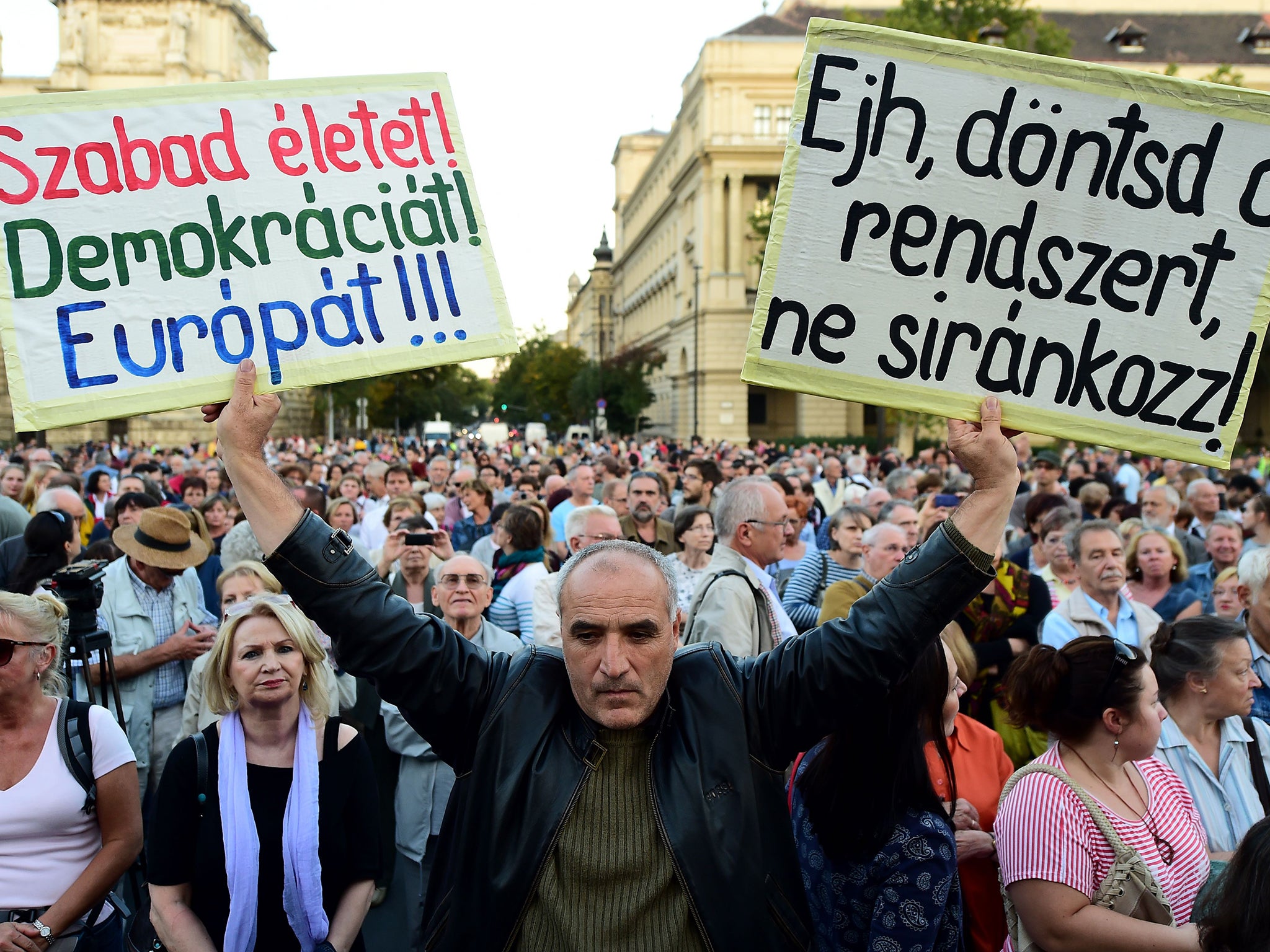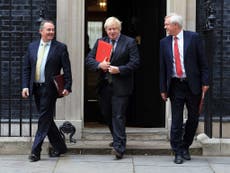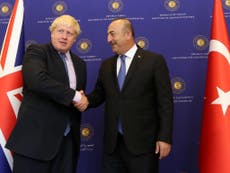Think Hungary's shock 98 per cent vote to reject EU refugee quotas makes it the exception? Think again
No 'old European' country would hold a referendum on the question put to Hungarians, but how would their public vote if they did? And what issue decided the UK’s referendum for many Leavers?


If any EU country was going to vote against accepting a Brussels-imposed quota for accepting refugees, then Hungary was a prime candidate. One of the most ethnically homogenous and linguistically closed of all EU states, it was also, by virtue of its geography, one of the most affected by the desperate procession of displaced people across Europe a year ago.
Pictures of Budapest’s main railway station overwhelmed by the mass arrival of people from elsewhere seemed to sum up something about the European Union’s inadequacy, whether of security or compassion – or both.
The result of Sunday’s referendum had seemed to be a foregone conclusion. The government of Prime Minister Viktor Orban had asked the country’s 8 million voters a leading question: “Do you want the European Union to be able to order the mandatory settlement of non-Hungarian citizens in Hungary without parliament’s consent?” And the answer was, well, not as decisive as Orban and his ministers surely hoped.
From those who took part came the expected resounding “No” (98 per cent of votes cast). But more than half of all registered voters appear not to have felt strongly enough to cast their ballot. The 43 per cent turnout fell well short of the 50 per cent required to make the referendum legally valid.
Any calculation by Viktor Orban that he would be able to use the result to pressure the rest of the EU into abandoning all idea of quotas has misfired. He insisted yesterday that the vote had shown overwhelming support for his position. But the Luxembourg foreign minister, Jean Asselborn, who argued that Hungary deserved to be suspended or expelled from the EU for its negative attitude to refugees, should perhaps think again: Hungarians have emerged as less dogmatic or xenophobic than they were painted.
The EU can also draw some consolation from this result. If nothing else, it suggests that the panic of this time last year has subsided. Hungarian opinion is less hostile to the EU than, say, that of the UK (which is logical, given Hungary’s status as a net beneficiary).
Whether the vote makes it any more likely that an EU quota system for resettling refugees will happen in any meaningful way, however, is another matter. Viktor Orban has claimed that he and his nation were pilloried for saying what others believed but dared not say. As other EU states started to erect fences, he claimed vindication for Hungary’s early resort to barbed wire.
He has some right on his side here. Of the East and Central European countries, only Poland has agreed to accept its allocation of refugees, and that with a rather bad grace. Others, including Slovakia, maintain that national security and the granting of asylum are not shared EU responsibilities (which is technically correct, but also impracticable when Schengen borders prove porous).
But the reasons why ‘new Europe’, by and large, resists EU quotas runs deeper. On the one hand, their only recently recovered sovereignty makes them especially resistant to delegating power. On the other, their years behind the iron curtain left them outside the cultural shifts taking place elsewhere in Europe, and with a legacy of social conservatism. So while old Europe expects new Europe to accept its responsibilities, along with the financial and security benefits of the EU, this is going to take time. It could also, post-Brexit, reinforce the argument for a “two-speed EU”.
So the new Europeans are different. But they are not that different. Probably no old European country would hold a referendum on the question put to Hungarians, but how would their public vote if they did? And, remember, what issue decided the UK’s referendum for many Leavers? Remember, too, who is funding the Calais “wall”.
This is why, whatever the Luxembourg Foreign Minister and Jean-Claude Juncker – his compatriot heading the European Commission – may say, an EU quota system for refugees will probably come into being (if it does) only with gaps in compliance and many a blind eye turned.
The British opted out from the start. New Europe, not just Hungary, is resisting. And this weekend, Austria’s Foreign Minister, Sebastian Kurz, described quotas as “unrealistic” and deplored the way “some countries” were using the issue to present themselves as “morally superior”.
This leaves the running to be made by Germany and France. But with both facing crucial elections next year, it would take a bold politician, or another crisis, to force the pace.
In the meantime, the 160,000 people hoping for European refuge will be resettled by stealth or not at all. And the EU as a whole will have to admit that, in the awkward mixture of hostility and apathy exposed by its referendum, Hungary may be less of an exception than the rule.



Join our commenting forum
Join thought-provoking conversations, follow other Independent readers and see their replies